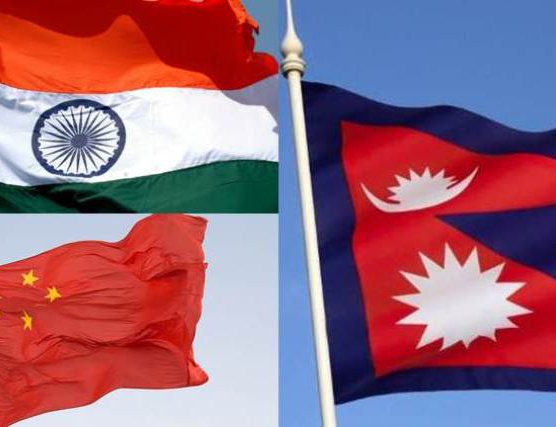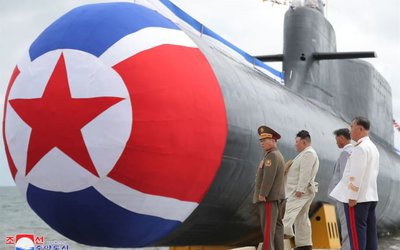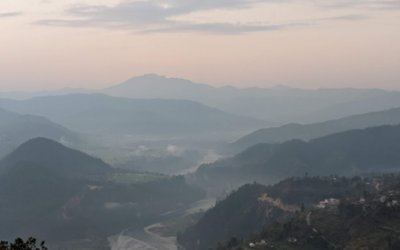
Nepal has long been a buffer state between India and China, but with a new communist government at the helm, the Himalayan nation may now lean more toward Beijing.
According to a United News Of India quoting CNBC report writes a coalition of two communist parties, earlier this month, led by former Prime Ministers Pushpa Kamal Dahal and KP Sharma Oli emerged victorious in Nepal's general election — a vote seen as a milestone in the country's transition from monarchy to federal democracy.
The election will reveal "to what extent China will emerge as a viable alternative to India in Nepal's foreign policy," analysts at research firm Stratfor said in a recent note. "One thing, however, is for certain: the rivalry between India and China for influence in Nepal will only ramp up."
According to CNBC, the election will reveal "to what extent China will emerge as a viable alternative to India in Nepal's foreign policy," analysts at research firm Stratfor said in a recent note. "One thing, however, is for certain: the rivalry between India and China for influence in Nepal will only ramp up."
Landlocked Nepal is one of the world's most remote countries, and it has traditionally remained neutral in India and China's rivalry over economic and political clout in South Asia. New Delhi, Kathmandu's biggest trading partner, has been the dominant player, particularly under the pro-India government of Nepali Prime Minister Sher Bahadur Deuba.
That could change. Oli, who is expected to succeed Deuba, has promised to boost foreign investment and is seen cozying up to Beijing in the process.
Nepal is a part of China's Belt and Road network, a grand infrastructure scheme that China is using to expand trade — and influence. Chinese President Xi Jinping's administration has pledged billions to build sorely-needed infrastructure in Nepal.
Oli insists Nepal will maintain an independent foreign policy, but experts say his actions indicate a bias toward Beijing.
"In a surprise move, Oli visited the border with China" and declared that the sole trade and transit point between the two countries "would be upgraded to international standards," wrote Harsh Pant, distinguished fellow at Indian think tank Observer Research Foundation, in a Wednesday note. "This came days before he blamed sections of the Indian media for creating rift between the coalition and New Delhi."
Oli is also expected to reverse a decision made by Deuba's government to cancel a $2.5 billion hydroelectric project awarded to state-owned China Gezhouba Group. "For Kathmandu, there is greater room for maneuverability now between China and India," said Pant.
Since a decade-long civil war ended in 2006, Nepal has struggled with fractured politics and a weak economy. The country has also been struck by crippling earthquakes that have delayed development.
“Kathmandu plays a limited role on the international stage, but for India and China, the 29-million-strong country holds strategic economic value. It also borders Tibet, the sometimes restive region that China took over in the early 1950s,” reports CNBC.
With the Nepal-India relationship taking a downward tilt in recent years, Beijing sees an opportunity.
A near five-month blockade at the India-Nepal border in 2015, which resulted in severe shortages of food, medicine and fuel, "gave the government an incentive to diversify its relations through closer ties with China," Stratfor explained. "In addition, the blockade caused many of the ruling elite in Kathmandu to cast a suspicious eye toward India, believing that the government in New Delhi tacitly supported the blockade."
It was during the blockade "that Oli emerged as a vocal critic of New Delhi's policy toward Nepal, even as he made his intention of taking his country closer to China clear," said Pant, who noted that Oli also worked to gain China's support for providing internet access and alternative trade routes during the incident.
"While Oli may look like a difficult proposition for India, New Delhi should also be aware that all governments in Nepal have tried to play the China card vis-à-vis India," Pant said. "Oli will not be unique in that respect, nor will he be the last."
As the new coalition has signaled a greater friendliness toward Beijing, that could be worrying for India, which has long enjoyed dominance in the Himalayan nation.
- Ambassador Subedi Presented The Letter Of Credence To President Of Italy
- Apr 25, 2024
- Nepal-Qatar Joint Business Council Formed
- Apr 25, 2024
- Weather Forecast: Isolated Brief Rain Is Likely To Occur At Few Places Of Koshi, Sudurpaschim And Karnali
- Apr 25, 2024
- Qatar And Nepal Ink Several MoUs, Returned Home Completing Two Days Visit
- Apr 24, 2024
- Russia Industrialists Met Prime Minister Dahal
- Apr 24, 2024
















